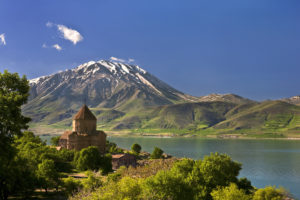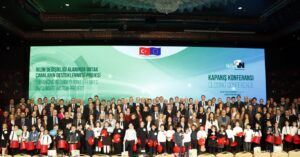
Increasing Competitiveness of Middle Black Sea Region TR83
Turkey’s Middle Black Sea region was set up in 2009 and is now well established; the Middle Black Sea Region Development Agency (OKA) carries out activities to support the economic and social development of Amasya, Çorum, Samsun and Tokat provinces. The main objective of this project was to

EU Eastern Anatolia Development Programme (EADP)
The East of Turkey has had delayed progress compared to the economic development of other regions in Turkey. In this context, the Eastern Anatolia Development Programme was a regional development programme aimed at building capacity for sustainable development by implementing innovative and participatory local policy and planning approaches.

Technical Assistance for Increased Public Understanding and Enhanced Stakeholder Capacity on the Required Joint Efforts on Climate Action
İklimIN began its implementation with the aim of increasing national and local capacity to prepare medium and long term climate actions towards climate resilient and low carbon development, increasing public understanding to foster joint climate action efforts which will result in gradual alignment with the EU climate policy

Support to Quality Infrastructure Framework within the DCFTA Context in the Republic of Moldova
The Moldovan Government has commitments under the EU Association Agreement (EU AA) roadmap relating to improving the domestic investment climate and enhancing the competitiveness of Moldovan businesses in foreign markets. This roadmap is designed to help close the country’s competitiveness gap, enhance its overall productive potential, move it

Technical Assistance for Supporting the Solution of Economic and Social Integration Problems in Diyarbakır, Şanlıurfa, Gaziantep, and Erzurum, as Major In-Migrant Destinations
Rapid migration in major urban areas, namely Diyarbakır, Şanlıurfa, Gaziantep and Erzurum (DGES), have adverse impacts in Turkey. To reduce these unfavourable effects, EKOSEP aimed to support social integration and environment-related infrastructure problems due to migration in the selected provinces in a multi-actor manner. Furthermore, it aimed to

Capacity Development of Employees and Employers via Information and Communication Technologies (ICT)
In Turkey, in common with all other countries, both employers and employees need to be aware of, and be able to use, the latest ICT tools in the workplace to improve the efficiency and competitiveness of their businesses and take best advantage of personal development opportunities. This project,

